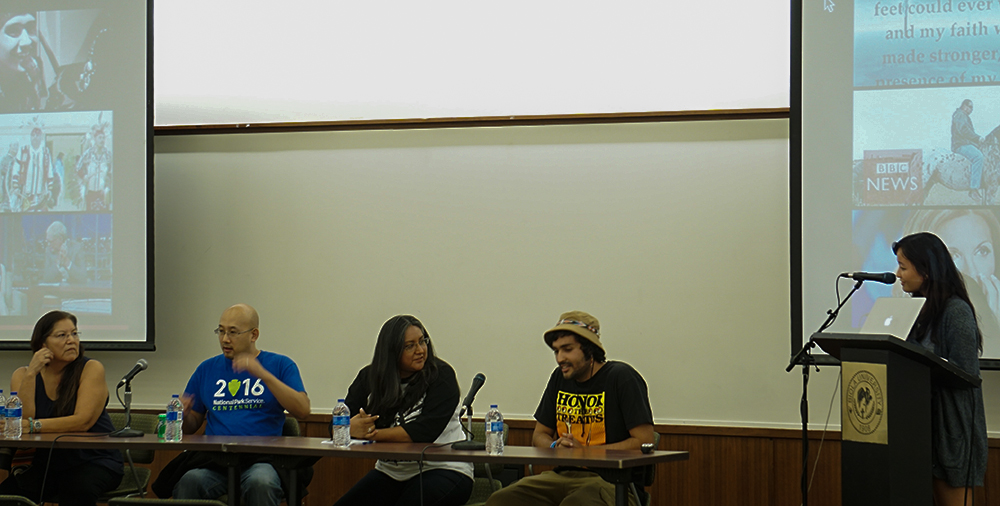Student Programming and Activities commenced Native American Heritage Week for the fifth year on campus with a screening of the documentary “The Canary Effect” and the video “We Shall Remain,” with eight students in attendance on Nov. 7.
Resilient spirit
The 2006 documentary “The Canary Effect” explained America’s genocidal origins, and the slam poetry video “We Shall Remain” showcased the resilient spirit of the Native American people.
A question and answer time followed the screening with Native American activist Eugene Hung, Biola graduate Kyle Quiroz and Native American community members Norma Blackwater and Jennifer Varenchik. Native American Heritage Week at Biola began five years ago when Quiroz, then a freshman, created a Native American ministry through Biola’s Student Missionary Union.
“It’s been really cool to see something that I’ve been praying for for a while to finally take foundation here. So, hopefully it will keep happening,” Quiroz said.
Education and celebration
Cross-cultural event coordinator for SPA and senior sociology major Katy Gutierrez helped plan this week’s events. In addition to the documentary screening, the Caf will have a Native American dinner on Wednesday, Nov. 9, and an informational booth about the Dakota access pipeline issue will be outside the cafeteria on Thursday, Nov. 10.
“Our goal is to learn and celebrate cultures that have not been widely represented in the past,” Gutierrez said in an email.
Gutierrez and Quiroz hope students will approach these events as learners, willing to listen to others’ stories.
“I want Biola to step out of their comfort zone and begin learning about other cultures. I believe it is important that we take the stance of learners and listen to others’ stories,” Gutierrez said in an email.
Protectors, not protestors
During the question and answer time, the four panelists discussed current Native American culture and dealt heavily with the Dakota access pipeline issue, the building of an underground crude oil pipeline through North Dakota, South Dakota, Iowa and Illinois in the Standing Rock Indian Reservation. The Native Americans involved in the protest remain concerned with protecting their culture and protecting one of the nation’s water sources.
“They are water protectors, they are not protestors,” Varenchik said to the audience.
All panelists shed tears while discussing police violence towards the water protectors, the media’s failure to cover the events and the silence of politicians on the topic.
Varenchik believes a movement of cultural awareness will continue to build within America. Although awareness for Native American culture often spreads through cultural appropriation, Varenchik also believes some people are moving in the right direction.
Aubrielle Nelson, senior kinesiology major, attended the event to gain a greater understanding of Native American culture. She came away stunned by the intense history told in the documentary and its stark contrast to the history she learned growing up.
“It’s almost like we’re taught that it’s all OK now,” Nelson said.
Varenchik encourages students to not only learn about Native American culture, but also to learn about their own cultures. She believes that people who learn about their own origins and ancestors can better understand the history of cultures other than their own. Intentionally seeking out understanding is crucial to the issue of reconciliation.
“This issue will continue until we decide it’s not going to,” Varenchik said to the audience.







